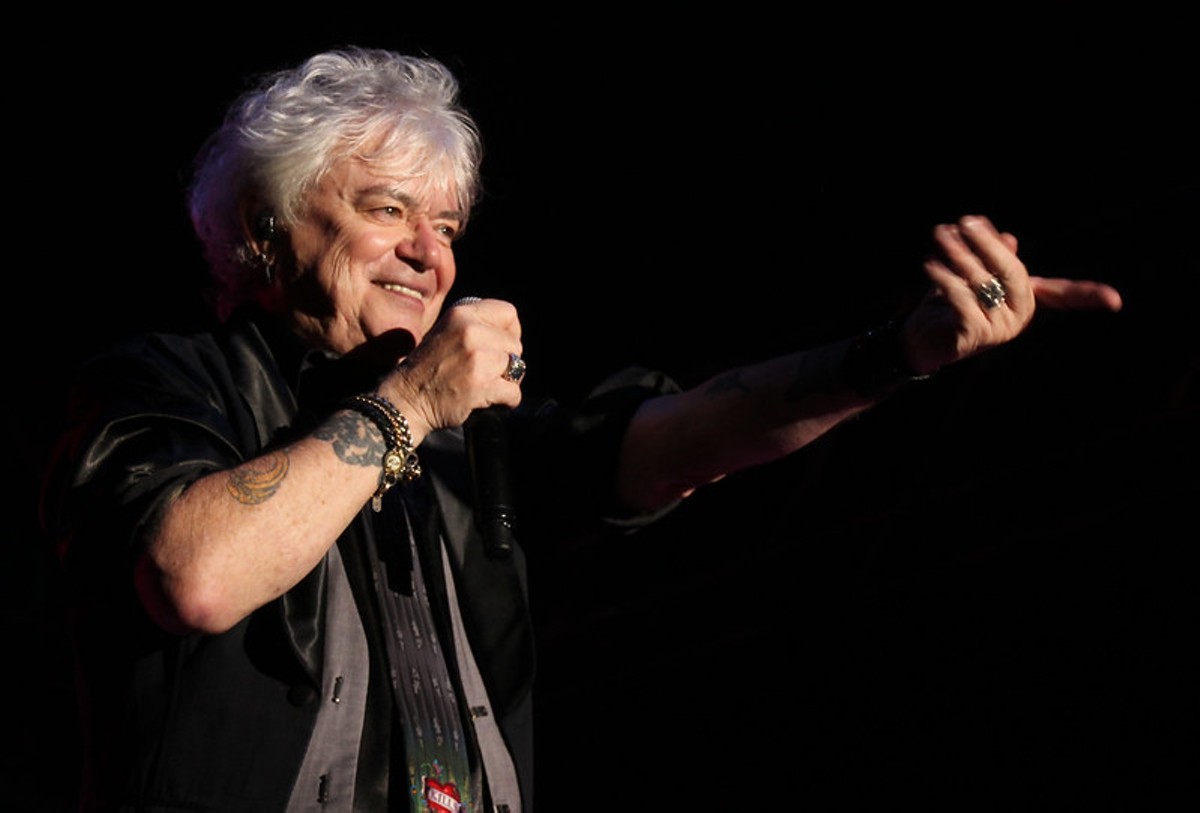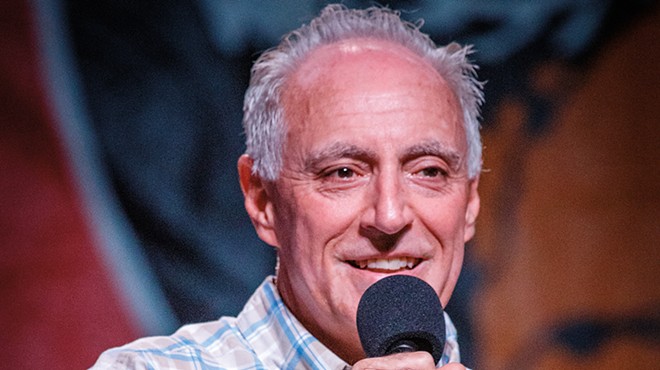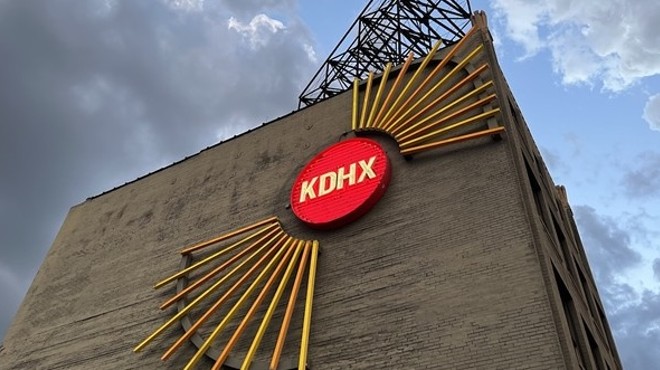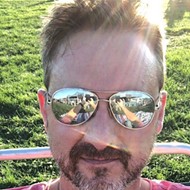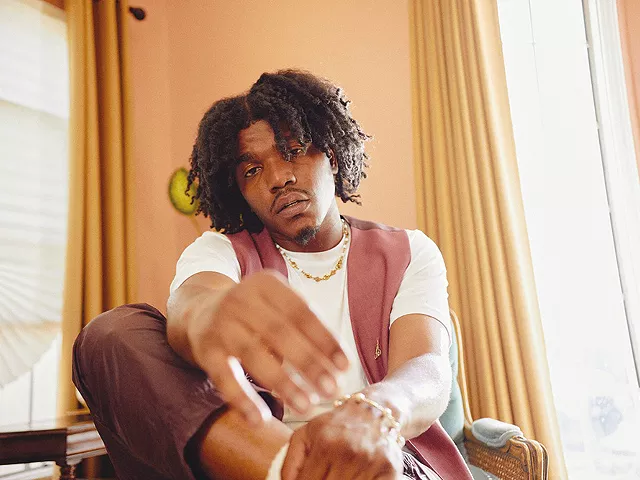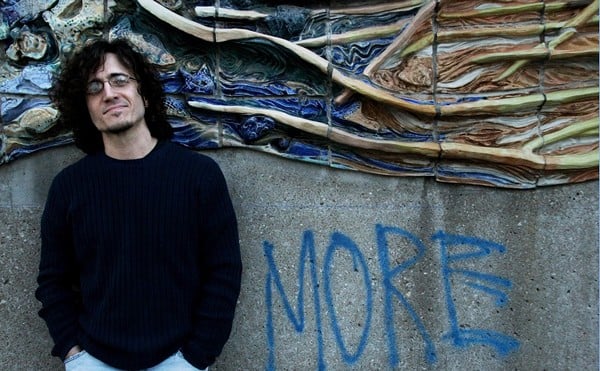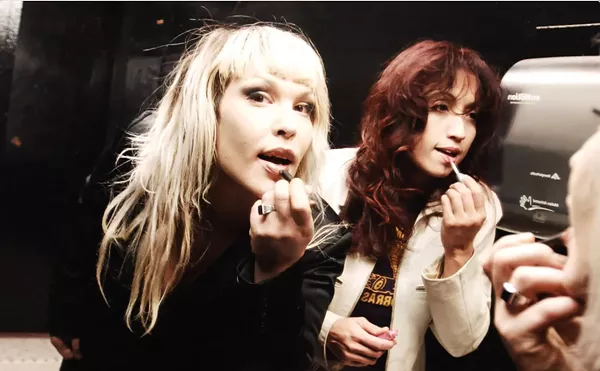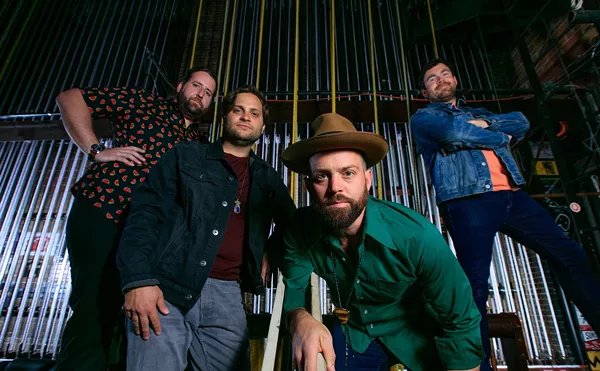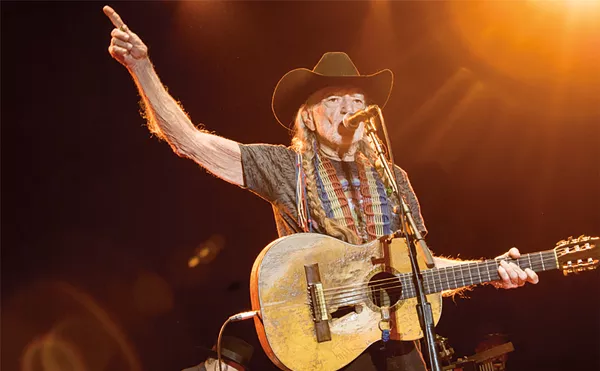My 15-year-old daughter says that she has never heard of Air Supply. This is distressing. She is a classic-rock-loving teenager, with many of the same posters on her bedroom walls that I had on mine when I was her age. Yet somehow the music of Air Supply — those massive, swoony love songs that were ubiquitous in the early ‘80s, songs that seemingly came right out of the taps and drifted along on the, well, air supply — have escaped her. How do these screenagers today slow dance at parties without Air Supply?
The answer is, of course, they don’t. Slow dancing has, tragically, gone extinct. It’s another thing that has died with Gen Z — like malls, cursive, dating and reading. But guess what. The world is starting to experience a RenAirssance. Air Supply, the Australian duo that started back in 1975 by Graham Russell and Russell Hitchcock, is playing to bigger, more enthusiastic audiences than at any time in decades. Naturally, longtime Airheads still show up and sing along to “Lost in Love” and “Every Woman in the World to Me” and “Making Love Out of Nothing At All” and “Even the Nights are Better,” but younger audiences are also discovering these big timeless soft-rock ballads, as Air Supply continue to tour 50 years into their career with no signs of stopping.
I called lead singer Hitchcock — you’ll remember him as the shorter of the two, the one who had the rad black afro back in their heyday, the one with that soaring tenor range — while he was on a tour bus somewhere in the Nevada desert ahead of the band’s show at River City Casino on Friday night. We talked about the music, the longevity, the crowds, the singing, the tattoos (!), octopi, getting snubbed by the Rock Hall of Fame and much more. Here he is, the one that you love.
How long are you out on tour this time?
Well, we really don’t stop. In April, we go to Latin America, to seven different countries, for a month, and then we have dates booked through December. We don’t consider that we ever stop. We just sometimes have time to go home and wash our undies and put the cat out.
What do you do for fun on the road besides play the shows? Do you explore the cities you’re in?
We don’t really get a chance to see too much. We’ve been in every state so many times now that the newness is gone. This weekend, for instance, we played Thursday, Friday and Saturday and then traveled overnight, so we don’t really have a chance to get out. It’s actually a pretty boring life most of the time. We were reminiscing the other night about touring in the ‘80s. We would get on the bus after a show, put on some AC/DC, grab a couple of bottles of whatever was available and hang out all night, but we can’t do that anymore. That’s for the young guys.
What are you noticing about the audiences at Air Supply shows these days?
Now we’re getting a lot more younger people. Teenagers. People who used to come to the shows are now bringing their grandchildren, which is good. For the last five years or so there’s something afoot that we haven’t experienced for a while. There is a lot more enthusiasm. Audiences are typically very rowdy. We’re selling out everywhere. There’s a great resurgence of Air Supply’s profile. We have songs in a lot of movies and TV shows, so there's just a new thing going on, which we’re very happy to see.
I suppose there are about eight or so Air Supply classics you have to play every night?
Absolutely. I wouldn’t want to go see the Eagles without them playing “Hotel California,” that’s for sure. We play what people expect to hear — “Here I Am,” “Lost in Love,” “Sweet Dreams,” etcetera. Graham has a solo spot in the middle of the show now, which is very cool. We’re in the process of finishing a new album, so those songs will start appearing in the show.
With your touring pace after all these years, singing the same songs, how do you keep the songs fresh?
I love them every night, and I always have. The fact that people come out in droves to see us means that the music has touched them quite deeply. The guys in the band now are a lot younger than Graham and I, so they bring a new distinctive influence to playing, so there’s always something that someone will suggest subtle changes that make it refreshing every night for us. But we’re a really energetic band, and we’re prompted by the audience’s reaction. We have a lot of direct contact with the audience, so all of these things make it better for us.
But I’ve been singing “All Out of Love” since 1978, and I never tire of playing it or singing it or hearing it. All of our hits — the response to those songs every night is awesome, so that gives us an extra hit of adrenaline every night that you play them. Last night, for instance, the crowd was crazy from the get-go. We just look at each other and say, “Wow, this is something else!” We just try to appreciate the moment.
Vocally, those songs are in a very demanding range. Are you able to still sing everything in the original keys?
It’s certainly harder than it used to be, but I’ve been very fortunate, and we play so often that it’s hard to get rusty because we play pretty much three or four times per week. But I try to look after myself now, eat more healthfully. I quit drinking booze a couple of years ago, which has made a big difference in my life. Your responsibility is to the audience. People have to pay a lot of money now to see shows, and we want to be as good as we can. I’m extremely proud with the way the band is right now. It sounds awesome.
Do you have a vocal regimen that helps you prepare for shows?
We get together with the band and just sing some parts to make sure everyone’s got their harmonies right. But not too much. When I’m not working, I very rarely speak at all, and when I do, it’s this low monotone thing. People always say, “Why do you speak so quietly?” And I always say, “I don’t get paid to speak. I get paid to sing.” Just looking after yourself is the most important thing these days. You have to be in tip-top shape to do the schedule that we do.
Graham Russell writes all the songs for the band. I’ve heard you say that you can’t write songs. What does that mean exactly?
I wrote some lyrics many years ago, and they weren’t good. It’s as simple as that. I don’t have whatever it is. I wasn’t given that gift at all. And when you work with Graham, who writes something every day, you’re never in need of material. And I’m very happy with what I do within the band. He doesn’t want to be the lead singer, and he can write songs and I can’t. It’s very simple. In that regard, we never have any problems with egos. Like “I want my songs on the record” or “I want to sing that.” We don’t go through any of that stuff. I really don’t feel the need to express myself in any other way than performing.
Talk more about the secrets of Air Supply’s longevity. How have you two managed to outlast almost everybody as a band?
I guess there is no secret. We respect one another. We love each other as brothers. We absolutely love being on stage together. We don’t see too much of each other when we’re not on the road. Graham lives in Utah out in the boonies, and I live in southern California. But it’s just a very easy relationship. We’ve never had to work at it. Graham says during the show that we’ve never had an argument, and that’s the truth. We’ll discuss things if we don’t agree with something, but it’s with a mature attitude. It’s always what’s best for the band or best for the song. That’s all that matters. We put our personal egos aside because at the end of the day, the song you put on stage has to be a mutual collaboration. I don’t see any reason for any fallout or confrontation. It’s not in our DNA anyway. Also, it ain’t rocket science. We play songs.
What is it like for you going back to Australia these days?
We went there the year before last and played with the Sydney Symphony at the Opera House, which was great. But we’re not as popular in Australia as we are pretty much everywhere else in the world. We call it the tall poppy syndrome. You’re supported until you have a lot of success. If you want to leave the country and explore other avenues and parts of the world, the people resent it and they cut you down like tall poppies so you're even with everyone else. We had massive hits in Australia in 1976. Then we toured with Rod Stewart in the U.S. and Canada in 1977, played 60 shows, a great success for us. When we came home to Australia, we were dead in the water. We couldn't get a show. It was just heartbreaking. To be asked to tour with the biggest act in the world at that point and to come home to nothing was very disappointing. We were dropped like a hot potato by the media and press there. But I hold no hard feelings about Australia or anywhere else. I love going back to Australia. I love the food there, and when I go back there I regress rather quickly and start speaking in tongues to my wife that she’s never heard before.
Next year will mark your 50th year as a band. Have you ever considered retiring or launching a farewell tour?
No, we haven’t thought about that at all. We both made a pact years ago — as long as we can perform at the level we want to and people want to still see us and we don’t feel silly doing it, we’ll keep doing it. Our days are far from over.
You mention having new music coming out. What should we expect?
We’re going to Canada next month to finish the vocals, and the album should come out a few months after that. The songs are done. Graham writes new stuff every day. I’ve never seen him on a flight of two or three hours without him writing something. I think the new songs are more mature than they have been before. He has a different perspective on life as we all do as you get older. Our song “Be Tough” from a couple years ago is quite thought-provoking. It’s a tip to what you can expect on the new album.
I want to ask you about tattoos. I saw you on the cover of a tattoo magazine years ago, and I was surprised because I thought it was at odds with your image. Now I realize that you were just ahead of your time. How does it feel to be a tattoo trailblazer?
[Laughs] I would certainly never remotely resemble that remark! I got my first one when my daughter was born in 1988. In the 1990s, I got quite a few more. In the last three years, I’ve really taken the plunge, and I have two full sleeves and I'm working on a new piece on my back. I love ‘em. I take a lot of flak about them from time to time, but I don’t really care. I get a lot of support from Air Supply fans, but I also get emails saying, “Why did you do that to your body?” And my response is, “Because it’s my body and I’ll do whatever I want to it. It’s none of your business. If you don’t like it, that's fine.” I always find it surprising that people who are tattooed don’t give a shit whether people have tattoos or not. People who are not tattooed care if people have them or not.
I saw that you recently got a large tattoo on your arm of an octopus. What inspired that one?
I saw the [2020] documentary My Octopus Teacher. Have you seen that? It’s just phenomenal. The next day, I stopped eating calamari! And I got the octopus tattoo because the more I learned about octopi, I found out how intelligent and emotional they are. Just amazing creatures, and I wanted to immortalize one on my arm. It turned out great.
You have been eligible for the Rock and Roll Hall of Fame for several years. You sold millions of albums and broke records for consecutive top five hits. Do you speculate about why you haven’t gotten in or if you ever will?
We’ve always speculated why we haven’t gotten in or why we won’t get it. It’s because we’re not cool. That’s the only reason. You can put sales and achievements and stack them up, and it will never be enough. I always look at the nominees. I looked at them this year. Quite frankly, I’m amazed at some of the acts that in my opinion don’t deserve to be there and acts that have been overlooked for so many years that it’s not funny. I really don’t feel any negative things toward it. It’s just the way it is. We’re not considered rock and roll either. We’re “middle of the road” or “soft rock” or whatever you call it. Which isn’t true when you see us live. We’ve always been a rock and roll band. But you can’t fight City Hall. We’ve carved out our niche in the business, and we've been going longer than most bands, and we’re very proud of where we are, and we're getting more respect from the media these days than we ever did. We’re very happy about that.
Do you have any specific memories of paying in St. Louis?
If I said yes, I would be lying to you. Of all the people in our organization, I have the worst memory. Every time we pull up somewhere, Graham says, “You remember this hotel?” No. “Do you remember this theater?” No, I don’t. The good thing about that is you’re always surprised when you get somewhere because you think it’s the first time you’ve ever been there.
Air Supply plays River City Casino on February 23, 2024 at 8 p.m. Tickets start at $50.
Follow us: Apple News | Google News | NewsBreak | Reddit | Instagram | Facebook | Twitter | Or sign up for our RSS Feed

